Where to find Rochester's one-stop market for Ethiopian and Eritrean goods
Addis Mercato, in the Addis Ketema district of Addis Abba, Ethiopia, is the largest open-air market on the continent. Covering several miles, locals and travelers alike know that they can get almost anything, especially delicious coffee, from the market. In the Ethiopian and Eritrean diaspora, the term “Mercato,” also spelled “Merkato,” conjures up images of the massive market at home.
So when husband and wife duo Simon Kebret and Frehiwot Mamo (in their tradition, wives retain their last names) decided to open a store in Rochester, naming it was easy.
“Merkato is where you find everything,” Kebret said. “People are familiar, they don’t have to question, ‘What do they have? Do they have this? Do they have that?’ they assume that they will find it … We didn’t want to name it one thing because we’re able to have different things.”
They quickly settled on Merkato, making the shop at 508 W. Main St. in the Susan B. Anthony neighborhood a place where their community could truly get anything. On the rare occasion they don't already have something a customer wants in stock, the couple simply orders it. Kebret and Mamo opened the shop in August of last year. The past eight months have been a whirlwind, but they already feel the love from the community.
A taste of home
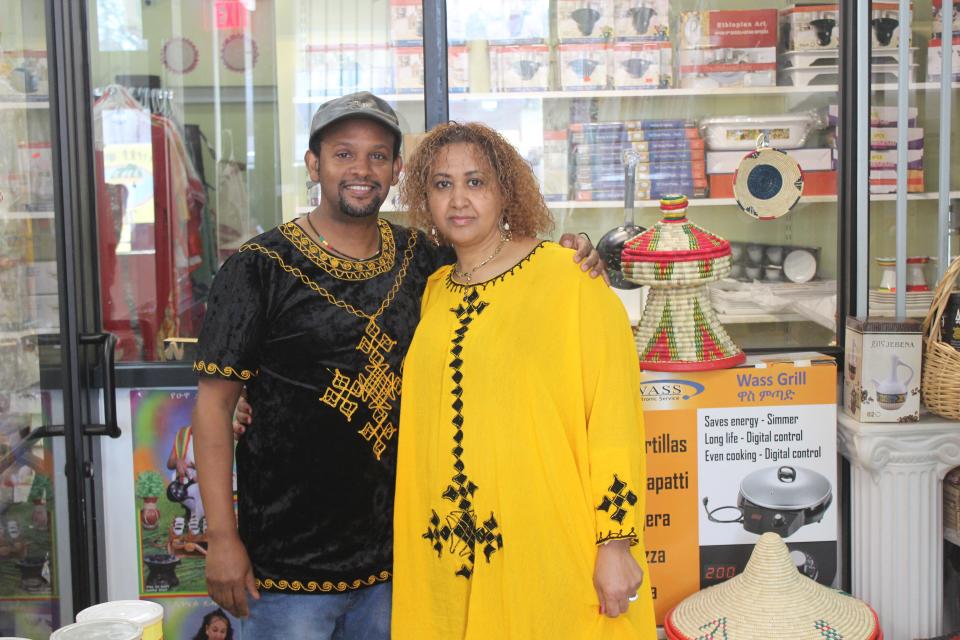
Prior to Merkato’s opening, people had to drive to Toronto or to the Washington, D.C., area to get Ethiopian and Eritrean products.
Dody Geworges has lived in Rochester since 2014. Prior to Merkato's opening, he himself made the journey to D.C. several times, packing his vehicle up with items to limit the number of times he would have to drive back and forth. Since opening Geworges has been to Merkato multiple times, purchasing injera, coffee, traditional clothes and other items on the way home from work, instead of having to make a long drive.
"We're so happy about Merkato because we, as the Ethiopian and Eritrean community, we don't have any stores available near to us," he said. "It's very helpful to us, especially the elders — they don't have to go far to get the stuff they want."
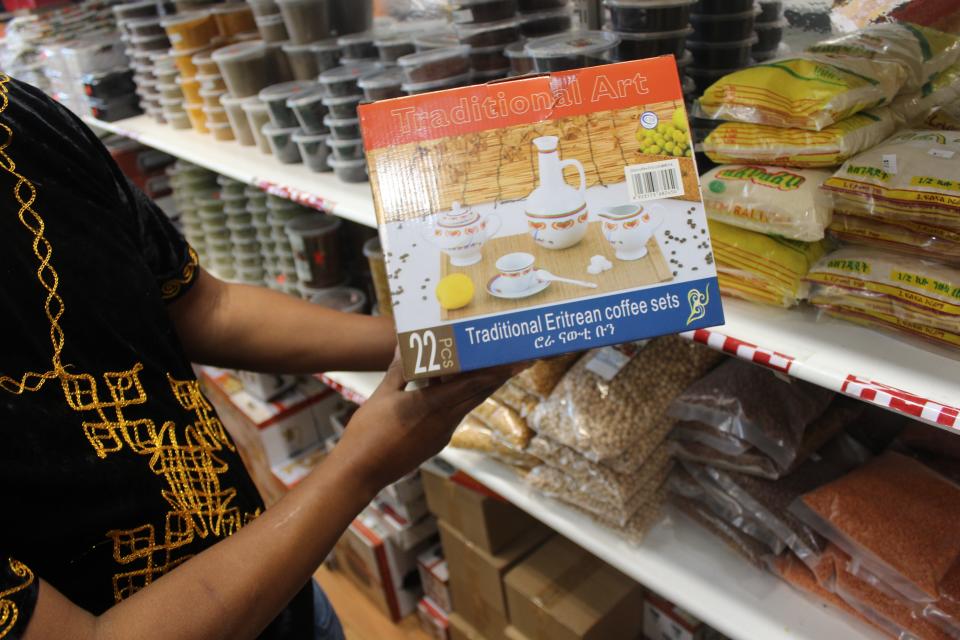
Those who chose to make the two-hour drive to Toronto might have had a shorter journey, but they had to deal with crossing an international border with goods. When the Canadian-American border was closed during the early years of the ongoing COVID pandemic, of course, those who typically drove to Toronto did not even have that option anymore.
The long distances were particularly arduous for elders in the community, who wanted tastes of home. With Merkato’s opening, Ethiopian and Eritrean people, along with others who are just interested in products from those countries, are able to get tastes of home in Rochester.
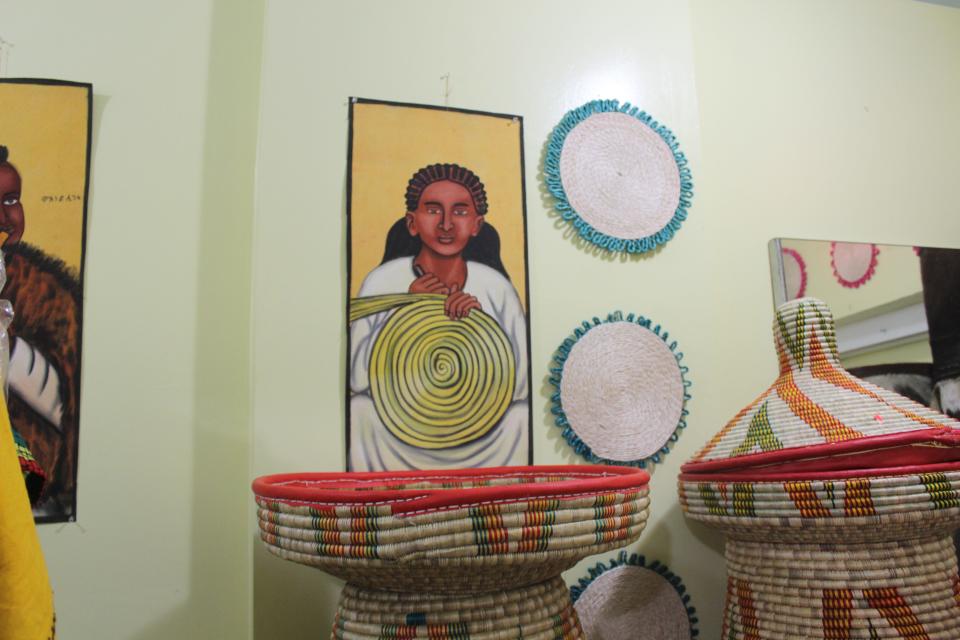
Melaku Ayele, Ethiopian community president, highlights that Merkato has organic and gluten-free varieties of Ethiopian staples. Further, he says, in all of his times at Merkato, he has never worried about the shop not having what he was looking for. This is a great contrast even to the options in Toronto, where he typically had to go to multiple shops for items. Perhaps most important is the fact that Merkato allows Ethiopian and Eritrean people to teach their children traditional foods.
"We like to teach our kids how our traditional foods are cooked the right way, so the right spices make the big difference," he said.
Because of Merkato's large supply, Ayele also says people don't have to worry about over-purchasing to the extent that the person who comes in after them isn't able to get the items for which they're looking.
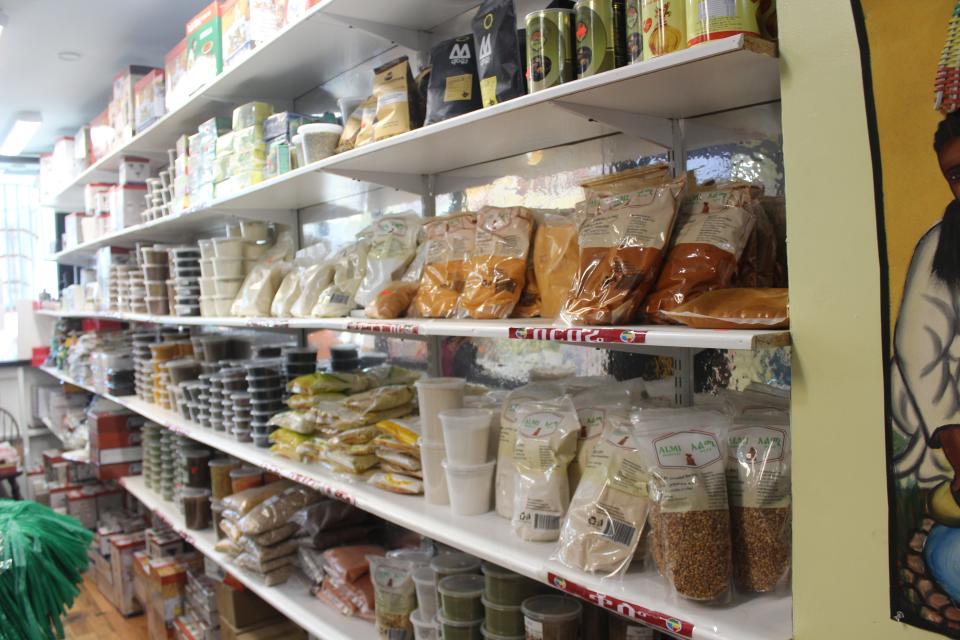
The shop is packed from wall to wall. Shoppers can look through authentic, handmade traditional Ethiopian clothing, hair products and jewelry, spices and seasonings, incense and tea, food products or traditional items like mesob, the woven boxes in which injera is stored. There is an entire wall of the shop that displays the wide range of spices, including, of course, berbere and flours. People who realize they have run out of teff no longer have to plan an arduous, long journey just to restock the essential flour — Merkato has them covered.
And, of course, there is the coffee.
When Mamo roasts coffee, the aroma greets customers as soon as they open the doors.
Coffee is at the center of social life in Ethiopia, Kebret says. It is what visitors are offered when they enter someone’s home. It is conduit through which people have conversations about politics, the economy, religion and other serious topics. Ethiopia is the birthplace of coffee, and, centuries after its cultivation, it still has a central role. Unlike in the West, where people have coffee on the go, Kebret describes its position in Ethiopian society as ceremonial.
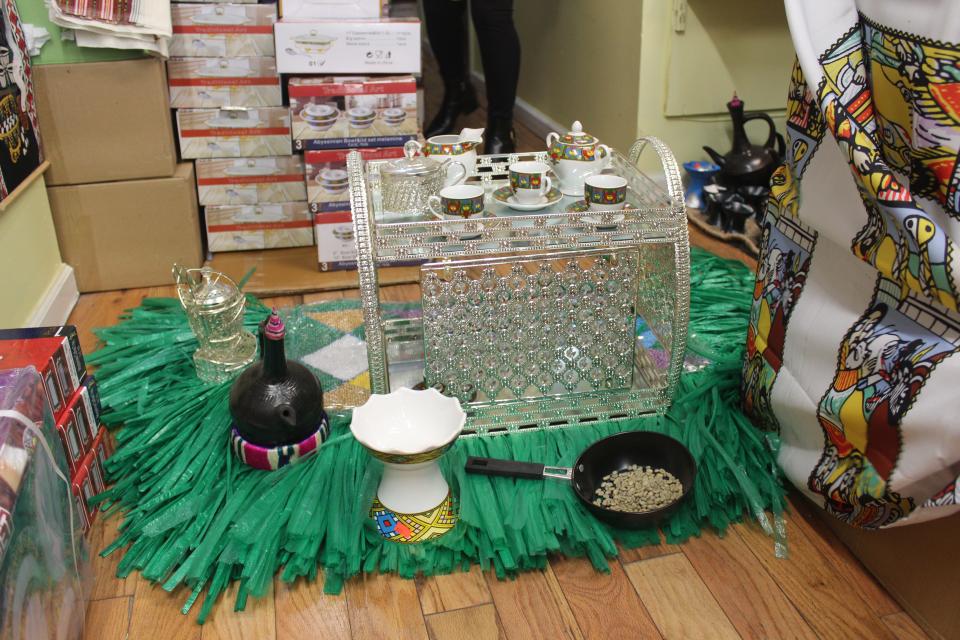
For Ethiopians, Ertitreans and westerners alike looking to recreate this process here in the States, Merkato sells not only pre-roasted and roasted coffee beans and coffee grinds, they also sell traditional Ethiopian ceramics used for coffee pouring and drinking and the traditional, handcrafted mats upon which people enjoy the drink.
Once Merkato is able to expand more, they hope to be able to offer the full coffee ceremony, allowing people to come in, sit down and fellowship over the drink in a way that is antithetical to Westerners’ drive-thru coffee fashion.
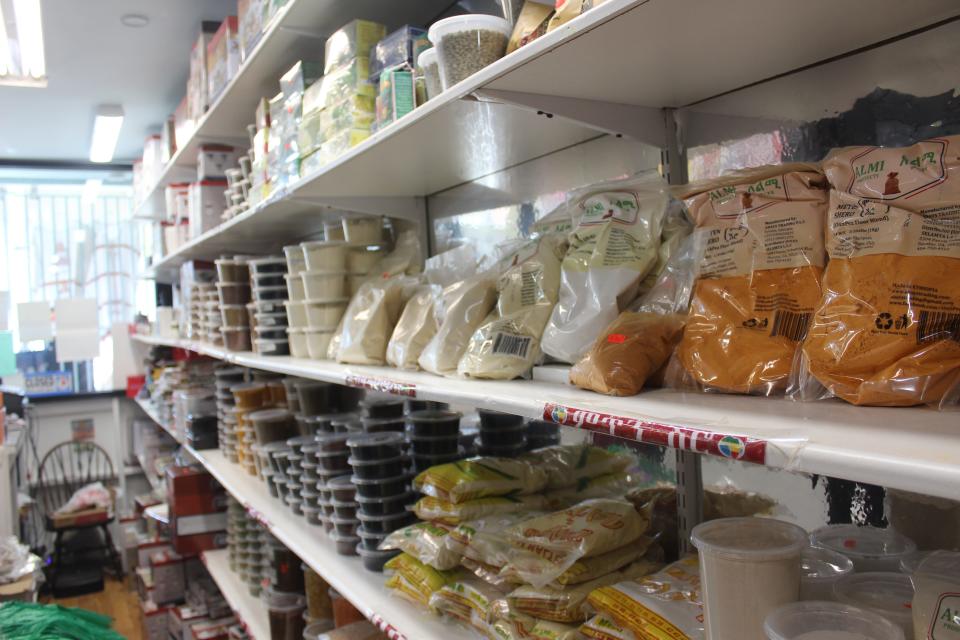
Merkato sells traditional Ethiopian and Eritrean clothes, all made by hand. For people who are not in the know Kebret and Mamo point out the intricate designs, motifs that are repeated throughout the clothing, ceramics and art. There are many handmade items: beautiful artwork that pays homage to people, specifically women, on the Ethiopian countryside who are depicted making injera or coffee or using ceramic basins to gather water from a river; mesob, weaved baskets in a wide array of sizes that are used for storing injera. And while they do offer a wide array of traditional items, Merkato also sells newer items, like an electric injera maker.
Making history
Ayele, Geworges and Merkato's owners all agree that the community has eagerly and warmly received Merkato.
Holiday seasons have been boons for Merkato. For instance, people who follow the Ethiopian calendar are currently observing a fasting season, a time during which they don’t eat meat. Merkato sells chickpea flour and other traditional foods that people eat during this time.
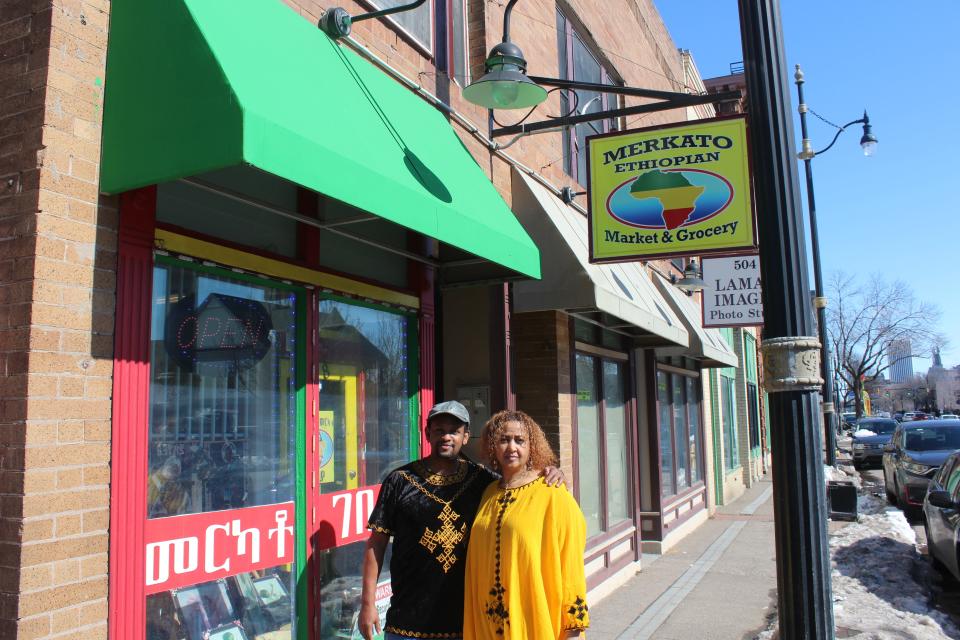
Kebret says some people have suggested the shop move to South Avenue or to one of the suburbs, but he was intentional about placing it in the city and in a historical neighborhood, at that. He wants it to be a space where people who have limited knowledge or no knowledge of Ethiopian history and culture can come and be educated.
And, so far, the space has been exactly that.
A Black American woman came in the shop one day, Kebret says, just to see what they had. She was so impressed with the quality of the range of items that she left having purchased a calfskin drum and a new stool. Others, he says, come in because they’re attracted to the brightly colored storefront. They come in only because they’re curious bout the store’s offerings, but leave with multiple items — and plans to return.
“They come in because they want to learn,” he said. “Some have a little bit of history that they know, some are just excited to learn. They come buy coffee or other products, or just to support and welcome us to the neighborhood.”
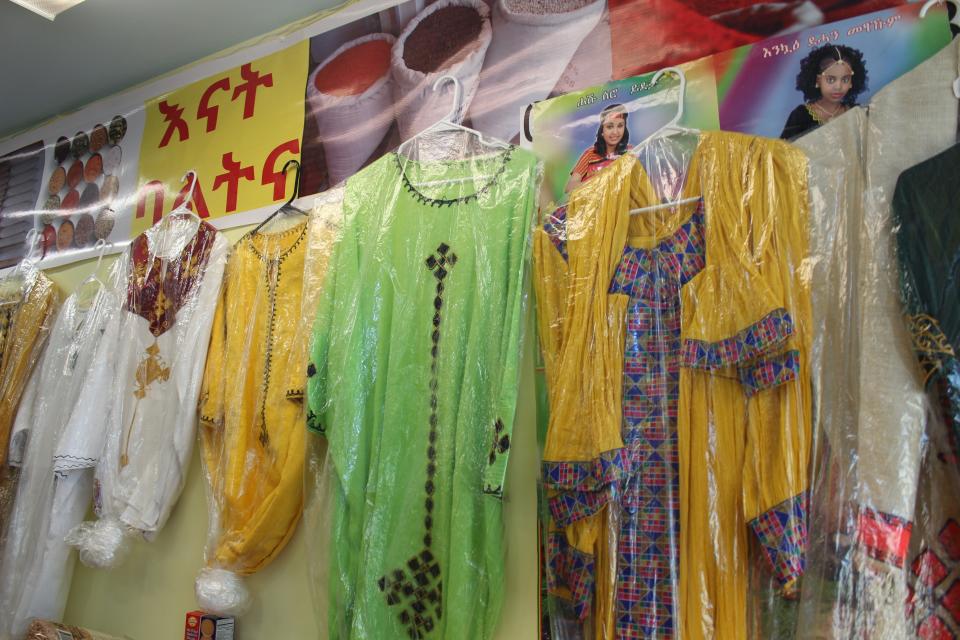
Ethiopia defeated Italian attempts at colonialization in the 1896 Battle of Adwa. Years later, however, Benito Mussolini led a second invasion attempt. If Ethiopia, the last un-colonized country in Africa, had fallen, all of Africa would have fallen. Fearing this and hearing horrific stories of atrocities committed during the war, many Black Americans rallied and traveled to Ethiopia to participate in the war efforts. The U.S. State Department attempted to prevent people from traveling to the country, but many managed to do so.
Red, green and yellow, the colors of Ethiopia’s flag, became the colors associated with pan-Africanism. Kebret learned this history here, and now he teaches it to those who visit Merkato, a history of unity and solidarity.
And it’s not just members of the African Diaspora who visit the shop.
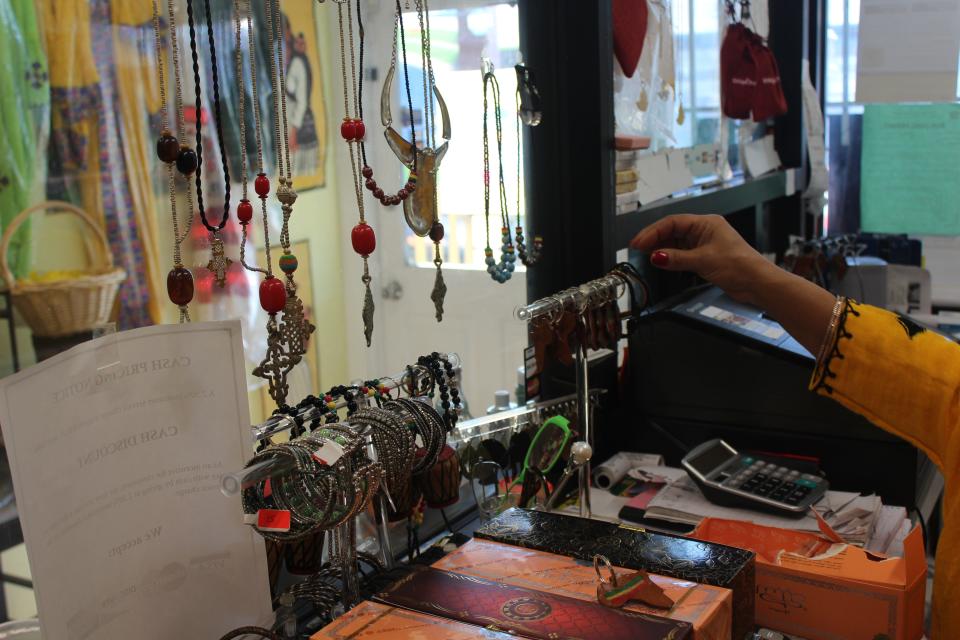
Kebret says that a white American couple from Syracuse made the journey to Merkato after reading about it online. They were ecstatic about the store’s opening because they previously were only able to buy Ethiopian products when they left the region. The shop is also conveniently located near a bus stop, so many people wander in while waiting for their bus.
Kebret and Mamo plan to eventually expand, but, for now, they are happy to be so enthusiastically received in the community.
This article originally appeared on New York State Team: Merkato Ethiopian Market in Rochester NY offers Eritrean goods and more

